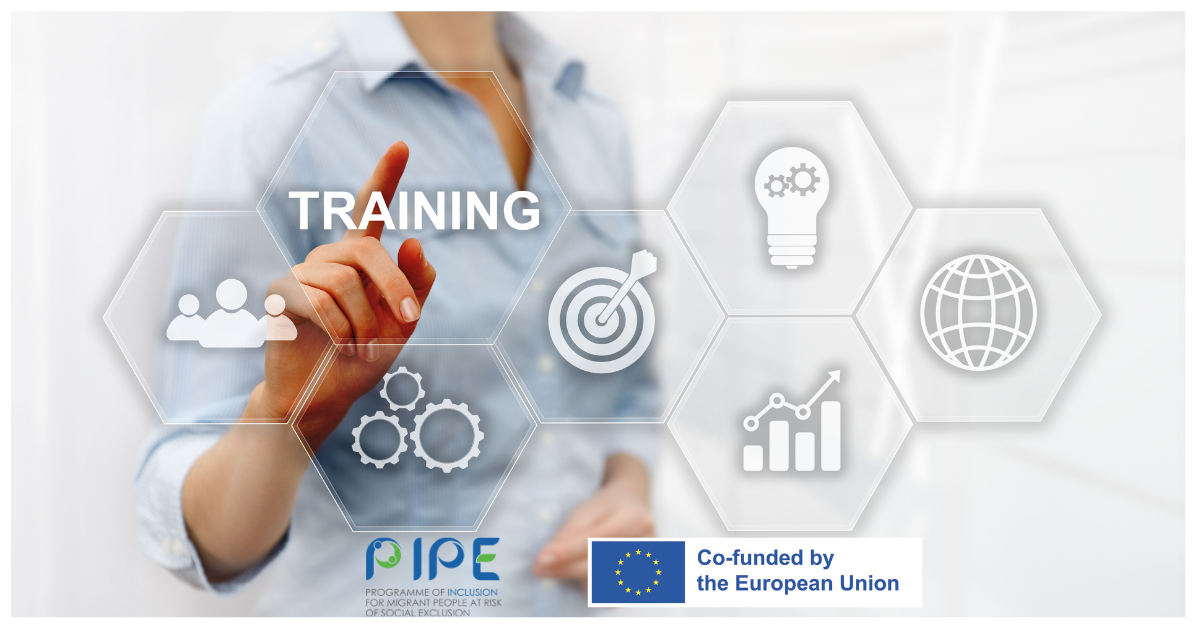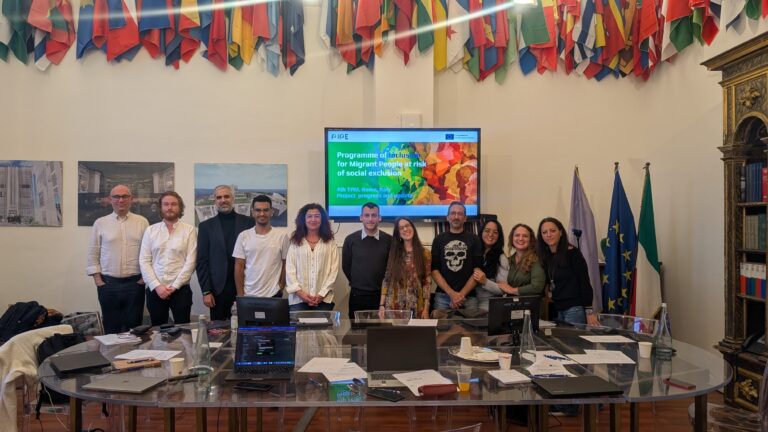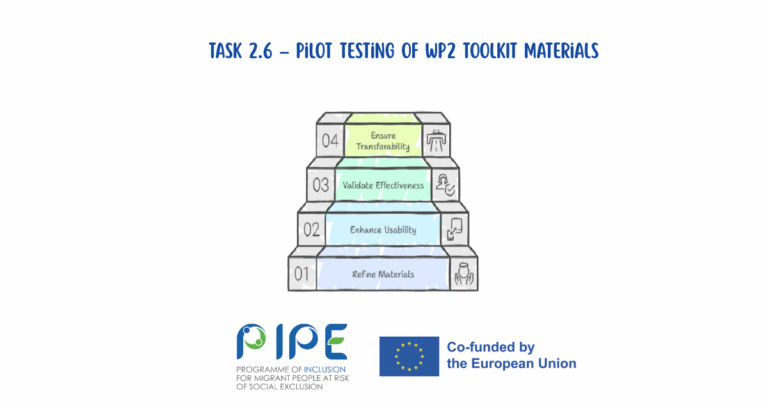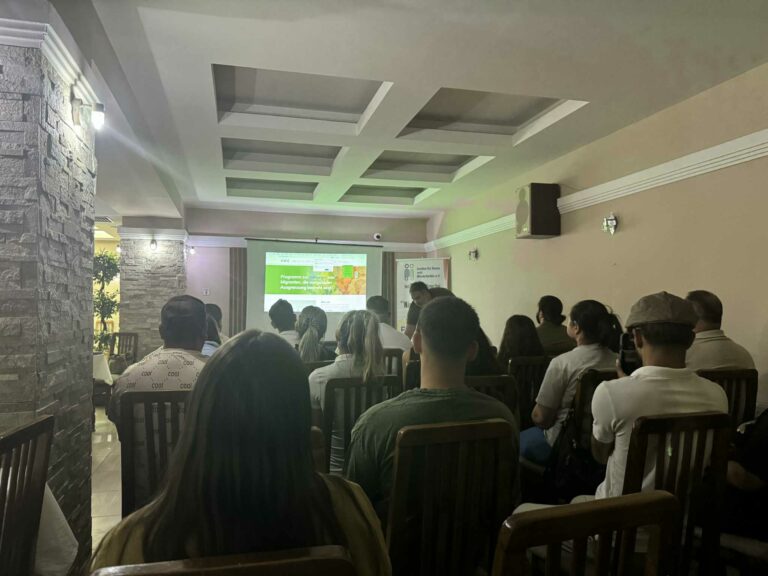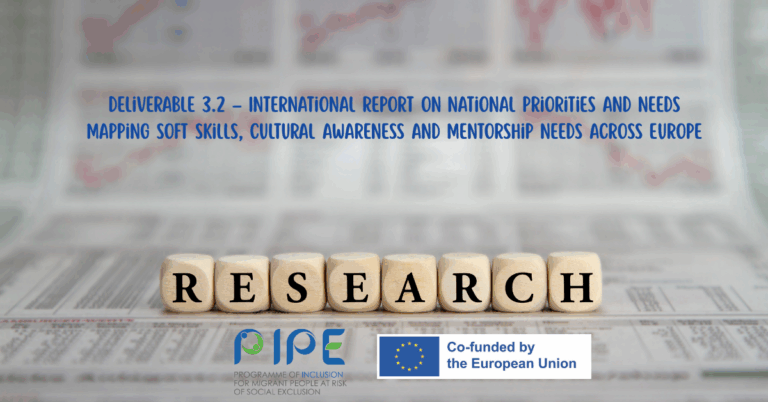How do you learn to feel at home in a new country? Knowing the language is important, but it’s not enough. You also need tools to communicate, work in a team, understand social rules, use technology, and feel like an active part of the community.
This is the idea behind the modular framework of the PIPE project, an innovative training pathway designed to help adult migrants and refugees develop skills that are useful both in everyday life and in the workplace.
A step-by-step journey, tailored to each person
The program is organized into eight modules that are independent but interconnected. Learners can follow them flexibly, depending on their needs. Some may start with language learning, others might focus on digital skills, or on understanding the work culture of their host country.
The training will be non-formal, online, and asynchronous on a Moodle platform, making it accessible anytime and from anywhere. This “building block” structure makes the training adaptable to different contexts and people, allowing each participant to create their own personal journey of growth.
At the end of the pathway, participants will also receive a certificate of attendance, an additional motivation to take part and complete the training.
What can you learn?
The modules cover all the key aspects of integration:
- Language and communication – to feel confident in everyday conversations and in the workplace.
- Intercultural communication and mediation – to understand differences and resolve conflicts.
- Work culture and rights – to navigate rules, values, and responsibilities.
- Mentoring – to grow with the support and guidance of others.
- Digital skills – to use online tools and new technologies safely and effectively.
- European citizenship – to learn about rights and opportunities within the EU.
- Sustainability – to adopt environmentally friendly practices in daily life.
- National ethics and culture – to discover traditions and values in each partner country.
Learning made simple and engaging
The modules go beyond text: they include videos, quizzes, practical guides, and interactive exercises, all available in the languages of the partner countries (Greece, Spain, Italy, Germany, and Denmark). The goal is to make learning accessible, engaging, and connected to real-life situations.
Looking ahead
Once the content is developed, the modules will be tested in each country, with participants sharing their feedback. This will help refine the materials and make them even more relevant and effective.
Beyond knowledge, the training also helps participants develop soft skills, strengthen cultural understanding, and benefit from mentorship, supporting both social and professional integration. In this way, PIPE responds practically to the different needs of migrants and refugees.
With this modular framework, PIPE aims to offer much more than training: it’s a real opportunity to gain confidence, feel part of the community, and build a future full of possibilities.

